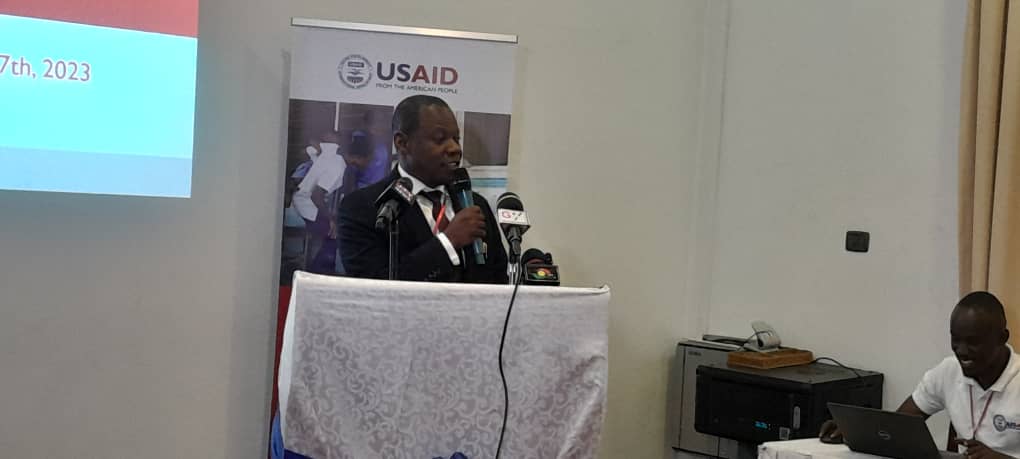By Eunice Hilda A. Mensah/Praise Adoghe
Accra, Oct. 19, GNA – Dr Patrick Kuma Abogye, the Director-General, Ghana Health Service (GHS), says nutrition in Ghana has improved.
However, a lot still needed to be done to advance food and nutrition.
With the support of the USAID, he said strides had been made in reducing stunting, underweight and anaemia in children and that there had been an improvement in early initiation of breastfeeding and exclusive breastfeeding rates.
While celebrating the progress achieved, Dr Aboagye said the Service acknowledged that a considerable portion of the population still faced slow and unequal progress, experiencing ongoing nutritional deprivation.
He made the remarks at a USAID “Advance Nutrition National Learning Event” held in Accra on the theme: “Deepening the Multi-Sectoral Nutrition Agenda – The USAID Advancing Nutrition Story”.
The GHS Director-General, said in certain regions, rural areas, and poor urban areas, the pace of reducing malnutrition, particularly anemia and stunting, had been slow and uneven.
The challenge was compounded by the emerging problem of over-nutrition, he said, indicating that the country was grappling with multiple facets of malnutrition, including issues such as poor child growth, micronutrient deficiencies, and adult overweight and obesity.
Evidently, wide disparities persist in malnutrition rates across various regions, locations, and wealth quintiles, highlighting the need for targeted and comprehensive interventions to address those complex and varied challenges, he said.
Dr Aboagye said meanwhile nutrition was inarguably one of the critical determinants of health and general wellbeing and that the nutritional status of young children was a comprehensive index that reflected the level and pace of household, community, and national development.
Mr Mike Foley, the Deputy Project Director, USAID Advancing Nutrition, said the advancing nutrition was a flagship project to address the various contributors to malnutrition.
He said the USAID strived to sustain positive outcomes by building enabling environment to save lives, improve health and diet and build resilience.
“We are facilitating local level planning and implementing programmes to address malnutrition and we are very proud of what we are doing to support Ghana to ensure the success of the food and nutrition security project,” he said.
Mr Selorme Kofi Azumah, Chief of Party, USAID Advancing Nutrition Ghana, speaking about the Advancing Nutrition project in Ghana, said it commenced in June 2020 to confront sectors in addressing malnutrition, inadequate capacity, multi-sectoral nutrition planning and implementation, poor financing of nutrition and gaps in capacity of health workers.
The goal, he said, was to improve district planning for equitable delivery of services that promoted household resilience and early childhood growth and development.
The project commenced in 17 districts in the Upper East and West regions, North East, Northern and the Savannah regions, but had increased to 55 districts in same regions.
Among the key accomplishments of the project, Mr Azumah said, was contribution to the development of Ghana’s commitment statements for the “Nutrition for Growth and Food Systems Transformation Summit.”

With the National Development Planning Commission (NDPC), he said they developed policy matrix and results framework of the food systems national medium-term plan.
The USAID also supported the NDPC to develop the Ghana Multi-sector Food and Nutrition Security Guidelines and trained 63 officials from the 16 regions on food and nutrition security.
Mr Azumah said they also provided maternal and child health record books for new mothers in health facilities and said that 250,000 more had been printed to be distributed.
GNA